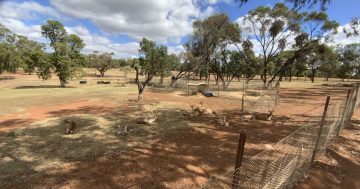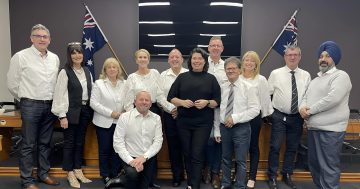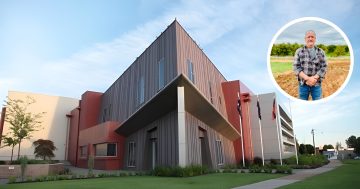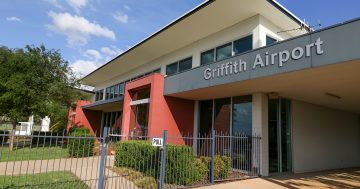
In a tight vote, Griffith council supported the rate hike by seven to five. Photo: Griffith City Council.
Griffith residents could see their council bills increased by 35 per cent within three years, after a majority of councillors on Tuesday (24 October) voted to apply to the regulator to increase rates by much more than the standard annual rate rises.
The motion for a special rate hike application passed seven votes to five with mayor Doug Curran and councillors Jenny Ellis, Shari Blumer, Glen Andreazza, Laurie Testoni, Chris Sutton and Manjit Singh Lally supporting it; while councillors Simon Croce, Dean Zappacosta, Anne Napoli, Melissa Marin and Christine Stead voted against it.
Council charges are regulated by the NSW Government body the Independent Pricing and Regulatory Tribunal (IPART), which sets the maximum annual amount councils can lift rates by, which is currently 3.7 per cent for the 2023/24 financial year.
However, at its October meeting, most Griffith councillors supported a motion for council to apply to IPART for a special rate variation (SRV), which would result in annual increases of 10.5 per cent over each of the next three years, resulting in a total increase of 34.9 per cent in rates by 2026/27.
If IPART approves this application, the average household would see their rates go up by $386 in three years’ time, while the average business faces a rate hike of just more than $1000.
Mayor Curran argued that rising costs and reduced financial assistance by the State Government put council in a weak financial position, and this SRV was necessary to avoid cuts in services.
“This was never my intent, we’ve been pushed into this by the State Government and IPART,” he said. “Our costs went up by between 7 and 20 per cent on all our materials and our wages went up by 5 per cent, they both outstripped our income.”
In opposing the motion, Cr Croce said ratepayers were already struggling to cope with the cost-of-living crisis.
“There’s a perception that Griffith is a wealthy town, but it’s not a wealthy town. We’ve got some wealthy people in it, but our average income is below the state average … we need to look within [council] on how to save money instead of what seems to be the easy way out and just putting up the rates.”
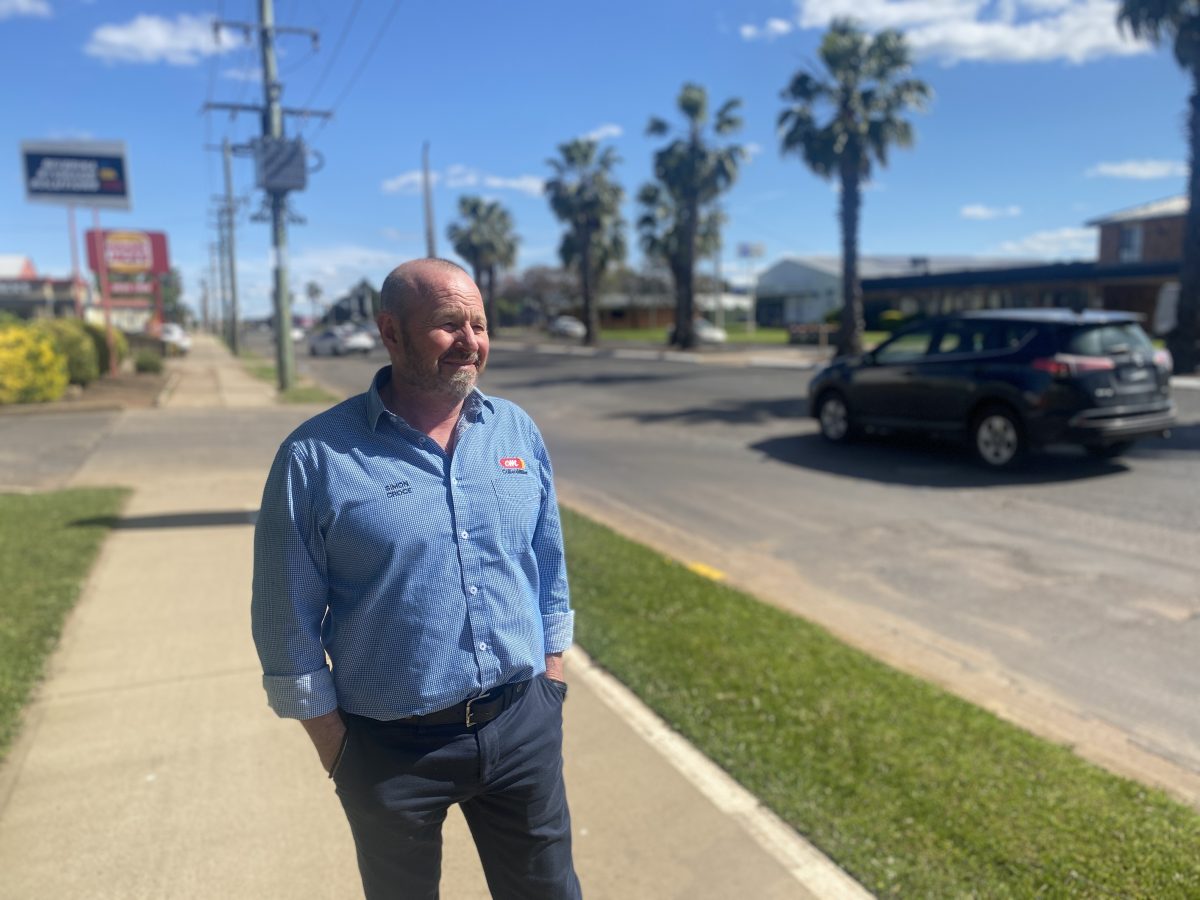
Simon Croce opposed the rate hike. Photo: OIiver Jacques.
The council vote occurred after several months of community consultation, which saw 158 written submissions made on the matter.
“We’ve had five months of consultation with the community,” Cr Zappacosta argued. “But they may as well have saved their breath, because their message has not got through to councillors … they’ve wasted their time writing submissions.
“There’s so many bills you’ve got in your household, the last thing you need is another bill from council … we should be in the business of keeping costs as low as possible.”
Cr Zappacosta suggested a “razor gang” be set up to look at how council costs could be cut, as an alternative to the proposed rate hike.
Cr Marin expressed similar sentiments.
“I believe it is our duty to listen to the people who have voted us in, 69 per cent of submissions made are quite clear they do not want a rate increase.
“I believe our council is top heavy in management and middle management, savings right there.”
In supporting the motion, Cr Blumer argued the alternative to a rate hike was cutting services – such as opening hours for the library.
“If the library is closed on a Saturday, unlike in metropolitan areas, a person cannot pop on subsidised public transport and go to another suburb to send an email or borrow a book.”
Cr Marin presented a counterargument to this, quoting one of the public submissions: “With the cost-of-living crisis, the last thing I’m worried about is Pioneer Park [museum] having to close early, we have to make sacrifices.”
Mayor Curran argued that if rates were not increased now, future generations would be burdened with the consequences.
Last November, a similar SRV motion proposed in Leeton was voted down by its council, after a strong community campaign against the rate hike led by former council worker Alison Egan.
After its successful vote, Griffith Council will now make a formal application to IPART for the SRV in its town by February 2024.
Griffith residents can then make submissions directly to IPART supporting or opposing their council’s application in February and March 2024. IPART makes its final decision in May 2024. If it approves the council application, rates will start increasing by 10.5 per cent in July 2024.
Submissions on the rate increase can be made on the IPART website. More information on the SRV can be found on the Griffith Council website.








